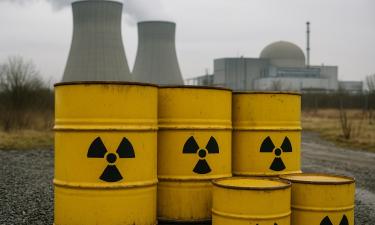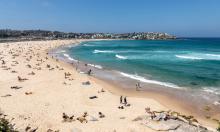Which Way is Democracy to Follow?
Another election intrigue is developing in Russia
The public opinion is being accustomed to the idea that instead of forming a united front for the forthcoming presidential election, the opposition is considering the opportunity of boycotting the election. It is allegedly said that Communist Leader Gennady Zyuganov has voiced the idea; he allegedly supports the statement with the fact that the Central Election Commission can approve of the parliamentary election results that, as the Communist Party believes, were falsified.
As it turns out now, Gennady Zyuganov has not provoked any boycott at all. This was merely his personal point of view upon the present-day situation and upon the party's further actions. He has not meant any boycott.
Russia's Communist Party is to make a decision on the form of its participation in the 2004 presidential election at a forthcoming plenum of the party; the decision is likely to depend upon the party's position toward the official results of the parliamentary election published by the Central Election Commission on Friday.
The past weekend found democratic forces deep in thought as well. The right-wing forces held a meeting in St.Petersburg on Saturday to express their opinion on participation in the presidential election and on probable nomination of a single candidate from the united democratic coalition. Creation of the coalition was to be decided at a closed congress of Yabloko on Sunday; at the congress the party was also expected to reach a final decision upon its participation in the presidential election. It is known that Yabloko has radically changed the opinion on the issue within the past several days.
A week ago, Grigory Yavlinsky said he did not treat the result of the parliamentary election as a defeat; he said he was ready to get united with SPS and other democratic forces for nominating a single candidate for the presidential election. However, when the Communist Party sent an official appeal on manual re-counting of votes in several Russian regions to the Central Election Commission and requested not to publish results of the parliamentary election before the recounting was over, Yabloko changed its opinion.
Yabloko deputy Chairman Sergey Mitrokhin thinks it is not ruled out that party will not take part in the presidential election. He says that not only Yabloko, but also communists so much pre-occupied with parallel counting of votes at the parliamentary election, insist that the election was falsified which may be confirmed by Yabloko's independent counting of votes as well. Grigory Yavlinsky does not plan to take part in the presidential election as he considers the election non-democratic: as there is no court independent from the administration, independent mass media and free sources of financing, there can be no real political competition.
SPS co-chairman Irina Khakamada does not rule out this result, but at the same time she thinks that it is not the only possible behavior scenario under the present-day situation. She says the rightist forces still have a chance to nominate a single candidate for the election. What is more, democratic forces may fulfill another political project and vote against all candidates.
Chairman of Russia's Central Election Commission Alexander Veshnyakov also commented upon the present-day situation. He is not embarrassed at all about the collision; he thinks there is little chance that the presidential election will be frustrated, and incumbent president Vladimir Putin is an obvious favorite at the election.
The Russia president officially confirmed his intention to run for the second period during his live appearance on TV and radio while answering questions of the Russian population on December 18. Vladimir Putin's reaction to the possibility of boycotting the election was also predictable.
Who is particularly happy about the hardest period in the life of Russia's democratic parties? This is Duma’s key showman Vladimir Zhirinovsky. Liberal Democratic Party leader has already supposed that the incumbent president of Russia and he will be the key figures of the forthcoming presidential campaign. He said: "Let Putin win his 60 per cent of votes, but I will get my 40 per cent. I will be the favorite of the poor and the dissatisfied. This will be normal disposition of power."
Some experts may say this disposition is more than normal. It will take some time before democratic values will become the daily want of people, will relieve their minds of fear, parasitic smugness and weak will and become the guarantee of people's rights and quality of life. People should fight for inculcation of these values into people's consciousness, they will hardly develop themselves following other people's example.
Liberation from illusions is very important for democrats as well as for several million of Russians supporting them, the best part of the nation. Each of the democratic electorate will make a decision independently whether to take part in the presidential election or not. In fact, the choice is not that great: either to vote for a democratic candidate if there is some, or to ignore the election or to vote against all candidates.
It is unlikely that people supporting democratic parties will object if the liberal opposition will become a non-parliamentary one because this will make it less dependant upon the authority and the opposition will acquire more informal opportunities.
We should work and not wait when other people will avail themselves of the inactivity. Here are thought express by some great people on this issue.
Alexander Gumboldt: "Everyone must be brave to defend one's views."
Historian Vasily Klyuchevsky: "We were given the alien western mind to teach us live our own way, but instead we used it instead of our own mind."
Aristotle: "Majority of tyrants originated from demagogues who had won people's trust by slandering the noble."
A. Strindberg: "When a state starts killing, it always kill itself a native land."
Subscribe to Pravda.Ru Telegram channel, Facebook, RSS!




